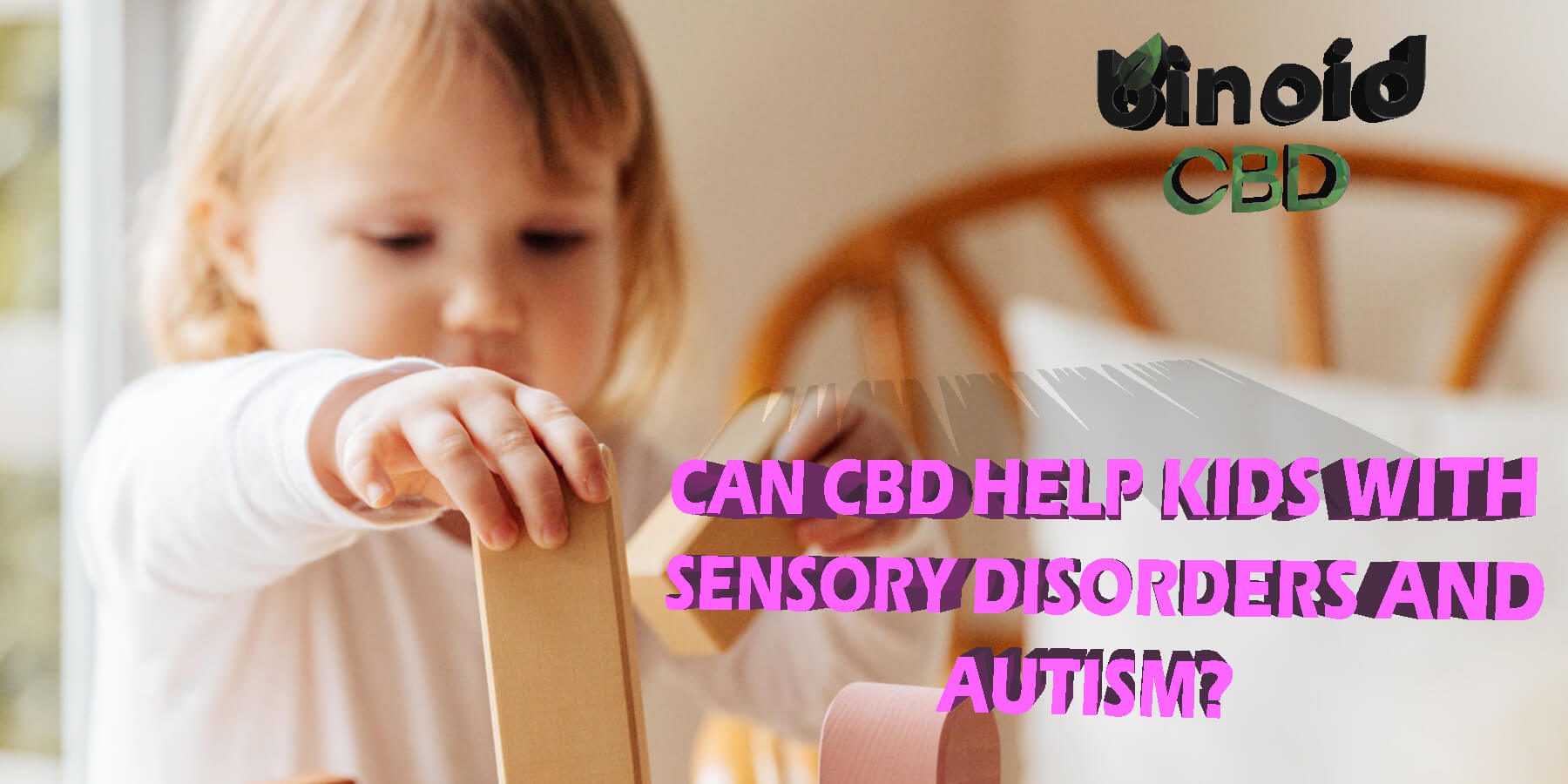As parents, we do everything that we can to keep our children safe, healthy, and happy. But, as many parents will tell you, there are some things that are beyond our control. Some children are born with neurological and developmental disorders that inevitably make their years in our care uniquely challenging. While we cannot cure our children of these types of conditions, we feel a deep need to do everything that we can to ensure that they have a normal and functional childhood.
Today, we will be discussing how Hemp Cannabidol (CBD) may provide immense benefits for children with Sensory Processing Disorders & Autism. There is not only studied evidence available, but we have also seen it first hand from our customers who have given our Binoid CBD products to their kids with processing disorders.
Any parent who has a child with a sensory processing or autism spectrum disorder is well aware of the difficulties that these conditions cause, and how hard it can be to watch our children struggle with what we consider to be basic tasks and experiences.
Trying to treat these disorders can be a frustrating pursuit as many medical professionals still don’t fully understand them. This leaves many parents feeling the burden of being solely responsible for ensuring that their children have lives that are as “normal” as possible.
At Binoid CBD, we’ve noticed that we have many customers who seek out cannabidiol specifically for their children who suffer from these neurological conditions. We also have many parents who ask us whether or not CBD is the right choice for them.
To Buy CBD Products Click Here
-
Product on sale
 Binoid Calm Day CBD Oil – Immune Boost$28.99
Binoid Calm Day CBD Oil – Immune Boost$28.99$64.99 -
Product on sale
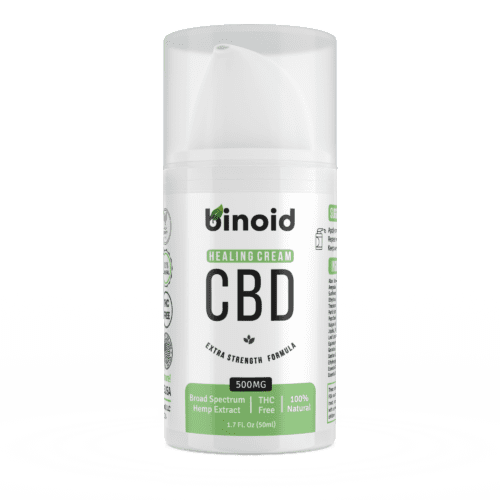 Binoid Healing Cream – Extra Strength$39.99
Binoid Healing Cream – Extra Strength$39.99$74.99 -
Product on sale
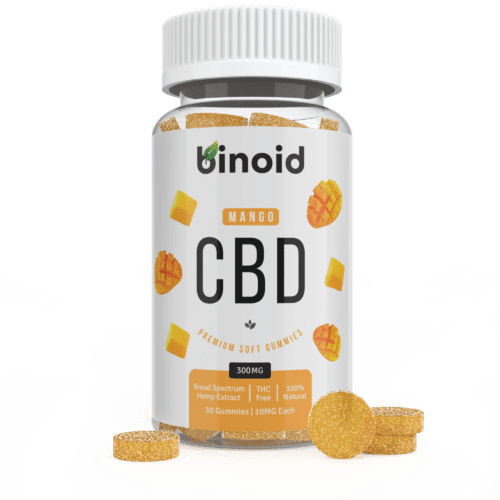 Binoid Gummies – Mango$26.99
Binoid Gummies – Mango$26.99$49.99
Sensory Processing Disorders in Children
A sensory processing disorder is a neurological disorder in which the brain struggles with sensory information. The five senses are constantly giving the brain important information about their surroundings and circumstances, and those with sensory processing disorders essentially struggle with being either oversensitive or under-sensitive to certain stimuli. [Source]
Sensory processing disorders can affect one or multiple senses. This condition is usually diagnosed in children, as it is a condition that a person is born with. The disorder is still widely misunderstood, but we do know that somewhere between five and sixteen percent of children suffer from it.
Typically, a child with a sensory processing disorder is placed into one of two categories: sensory avoiding, or sensory seeking. Sensory avoiders avoid certain sensory triggers, such as specific sounds, textures, or visual conditions like bright lights. These triggers can be extremely overwhelming and can cause strong emotional responses such as anger, fear, or panic. These children are oversensitive to certain sensory stimuli.
Sensory seekers have the opposite challenge, in that they are under-sensitive. They try to compensate for this by overly engaging with sensory triggers whether they relate to touch, sound or another type of sensory stimuli.
There are two other types of sensory experiences that go beyond the five senses. These are spatial awareness and interoception, which is the way in which a person feels in their own body.
- Those with spatial awareness issues may be perceived as clumsy, as they struggle with understanding their relation to their surroundings.
- Those who have interoception-related issues may be extra sensitive to pain, or have a hard time recognizing the urges for certain bodily functions, such as using the bathroom.
Symptoms of Sensory Processing Disorders in Children
Because sensory processing disorders encapsulate such a wide range of sensory-related challenges, there is no one specific symptom to look out for. But a parent will almost certainly notice behavior that is out of the ordinary from a young age. Looking for avoidant or seeking behaviors is important, as these behaviors indicate that the child may be struggling with sensory triggers.
Diagnosing and Treating Sensory Processing Disorders in Children
There is no formal method for diagnosing sensory processing disorders, and typically, coming up with a diagnosis is based largely on ruling certain things out and observing behavior in order to see if it fits within the criteria. There is no official medical treatment for this type of neurological condition, so it typically comes down to the parent making certain changes to a child’s routine and environment in order to prevent strong emotional responses caused by the condition.
Autism Spectrum Disorders in Children
Another type of neurological condition that can be present in children is an autism spectrum disorder. Autism is a condition that presents itself in very early childhood, and is apparent as the child develops. It’s classified as a neurological and developmental disorder. In fact, 1 in 54 children have some form of autism, and boys are more likely to develop it than girls.
Autism affects the nervous system and can present itself in many ways. There are many different symptoms that a child can develop as a result of autism, and they revolve around emotional response, communication abilities, repetitive behaviors, obsessive behavior and learning abilities. [Source]
Main Autism Spectrum Disorders in Children
There are three main types of autism spectrum disorders, which can all be evident during early childhood.
Type #1: Autism Disorder
Autism disorder is a general term for anyone who is on the autism spectrum. Symptoms can vary in severity, but typically, a child struggles with communication and learning skills and managing their emotions.
Type #2: Asperger’s Syndrome
Asperger’s syndrome is a form of autism. Once, it was considered a disorder separate from autism, but now, it’s considered a form of autism. What makes those who have this condition unique from those with other forms of autism typically relates to intellectual abilities. Asperger’s patients are perceived as having higher levels of functionality, and the condition may not be as obvious to others as those with autism, because the symptoms tend to be milder, at least outwardly.
Type #3: Pervasive Developmental Disorder
Pervasive developmental disorder is a term used when a child does not necessarily fit into our common perceptions of specific autism disorders. It means that the child has delayed development. A child may struggle with socialization or communication skills at a time during their development when these skills should come naturally.
Symptoms of Autism Spectrum Disorders in Children
Symptoms indicating various autism spectrum disorders can differ from child to child, but typically, a parent should look out for:
- Delayed development
- Extreme emotional responses
- Difficulty in communicating
- Learning disabilities
- Inability to make eye contact
- Unusual facial expressions
- Speech difficulties
-
Product on sale
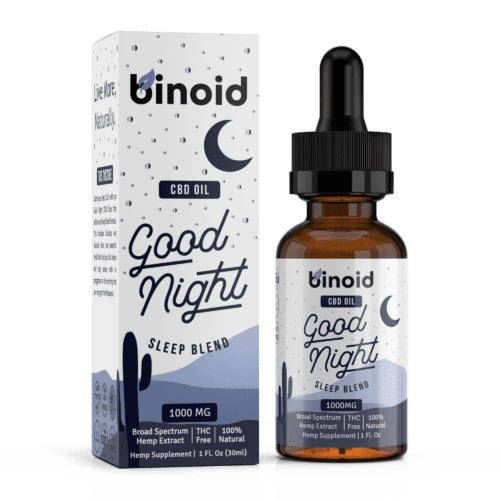 Binoid Good Night CBD Oil – Sleep Blend$28.99
Binoid Good Night CBD Oil – Sleep Blend$28.99$64.99 -
Product on sale
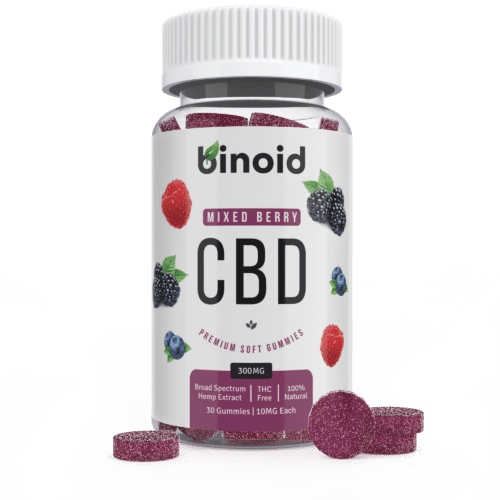 Binoid Gummies – Mixed Berry$26.99
Binoid Gummies – Mixed Berry$26.99$49.99 -
Product on sale
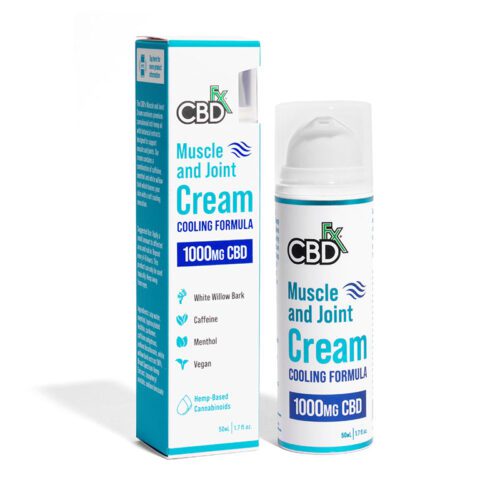 CBDfx CBD Cream Muscle & Joint 1000mg$44.99
CBDfx CBD Cream Muscle & Joint 1000mg$44.99$49.99
Diagnosing and Treating Autism Spectrum Disorders in Children
Diagnosing autism spectrum disorders does not rely on a formal diagnosis, which is challenging for the parent as it can take a long time to simply get a diagnosis from a doctor. A doctor will diagnose this type of disorder by observing the symptoms and ruling out any other potential conditions.
There is no cure for autism, and treating it is difficult as there is no proven effective method, or medication intended specifically for this condition. Therefore, it’s mainly up to the parent to provide unique forms of care to the child and ensure that their environment is one that is appropriate for their extremely unique needs.
CBD for Sensory Processing and Autism Spectrum Disorders
We said earlier that more and more parents of children with these disorders are turning to Hemp CBD. CBD is cannabidiol, which is the dominant compound in the hemp plant. Thanks to legalization it is widely available today, and does not require a prescription as it is purchased over the counter. This makes it much safer and easier to access. Especially with new studies releasing almost weekly.
Cannabidiol is a cannabinoid, which means that it is utilized by the body’s endocannabinoid system. This system consists of a series of cannabinoid receptors that are found in every system of the body. When cannabinoid receptors receive cannabinoids like CBD, regulatory actions take place that balance bodily processes. Therefore, essentially, CBD simply regulates the overall function of the body in an effort to achieve homeostasis.
Research For CBD & Sensory Disorder (Autism)
Now, let’s look at the specific potential effects of Hemp CBD, as demonstrated in clinical studies.
- Study #1: We’ve seen plenty of studies showing a link between improved cognitive function and cannabidiol intake, likely due to the effect of CBD on cannabinoid receptors in the brain. Cognitive processes such as memory, focus, sensory response, and mental stamina may all be stimulated by cannabidiol, and these processes may be compromised in those who suffer from the neurological conditions. For this research, the benefits of CBD match up well with the symptoms of sensory processing disorders.
- Study #2: Children with certain autism and sensory processing disorders may struggle with energy regulation. They may show signs of extreme lethargy or extreme hyperactivity at inappropriate times. We know that CBD plays a role in energy homeostasis, which refers to the process of balancing the part of the brain that controls energy levels throughout the day. Cannabidiol may balance energy levels in a way that is more consistent and even throughout the day.
- Study #3: Children with both types of neurological disorders tend to struggle with regulating their emotions. Many have a hard time responding to undesirable events, circumstances, environments, and sensory experiences, and may show symptoms of rage, fear, or general distress. CBD’s effects on stress, and children with these conditions often have an exceptionally low stress threshold compared to those who do not have these conditions. Therefore, CBD may be able to help children with processing disorders stay calm throughout the day.
- Study #4: Another common symptom of both types of disorders is disturbed sleep. This can be caused by hypersensitivity to certain sensations during sleep, extreme stress that causes sleep disturbances or hyperactivity. It appears though, that CBD regulates the neurotransmitters that play a role in the sleeping process.
- Study #5: Children with both sensory processing and autism spectrum disorders may have a lower pain threshold or may have stronger responses to pain. If the issue is heightened pain sensitivity, CBD may, according to research, be able to play a role in managing this symptom. Cannabidiol seems to have the potential to regulate the function of pain receptors in the brain to produce a higher pain tolerance.
- Study #6: The FDA has already approved a CBD-based drug for children with epilepsy and it’s being researched in hopes that it may play a role in managing the symptoms of dementia. We know that both sensory processing and autism spectrum disorders relate to the function of the neurological system. The study cited demonstrates that cannabidiol seems to have a regulatory effect on overall neurological function.
- Study #7: One specific 15 year old child, as well as others with Autism Spectrum Disorder (ASD) used CBD as a complementary treatment for his disorder as well as epilepsy. Benefits noticed included 7 hours a night of sleep without issues, much easier time initiating and responding in speech, more energy and overall motivation, started a part-time job with social interactions, and now has a girlfriend. No side effects of the Cannabis CBD oil were reported. Not only did the CBD help him mentally, but it helped him socially too.
Administering CBD to a Child with a Sensory Processing or Autism Spectrum Disorder
In order to give a child with one of these disorders cannabidiol, there are a few guidelines that you should follow for the safest and best possible results.
#1: Speak with Your Doctor
It’s absolutely crucial that you get your doctor’s approval before administering CBD to your child. Your doctor must be made aware of your child’s medical history, along with any medications that they may be taking. While CBD has been studied to show that it’s nontoxic to the human body, your doctor must still be aware of anything that you are giving your child in an effort to treat a particular condition.
#2: Choose the Proper CBD Milligram Strength and Formula
The milligram strength and formula make an enormous difference. The milligram strength refers to the concentration of cannabidiol in a particular formula. In other words, it determines how potent each dose is. Children with these disorders may benefit from higher strengths, but at the same time, a child’s body weight also plays a role in how much CBD they should have.
Most people start with a strength of 500-1000mg CBD, however some need to go all the way to 2500mg to see CBD benefits for sensory disorders. Even still, we always suggest starting low and working up until you see the benefits you desire. CBD is not a one size fits all, and it may take some learning and adjustments to get it perfect for your children. For this reason, we suggest starting with 500mg of CBD oil first.
Further, you must look at the other ingredients in a formula to ensure that they are both appropriate and safe for your child. You should speak about this with your doctor.
-
Product on sale
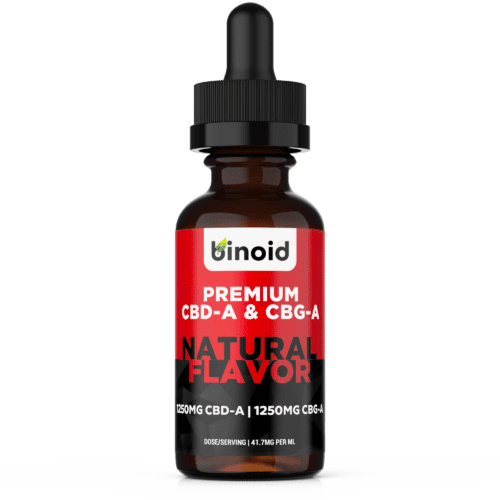 CBDA and CBGA Immunity Tincture – 2500mg$33.99
CBDA and CBGA Immunity Tincture – 2500mg$33.99$79.99 -
Product on sale
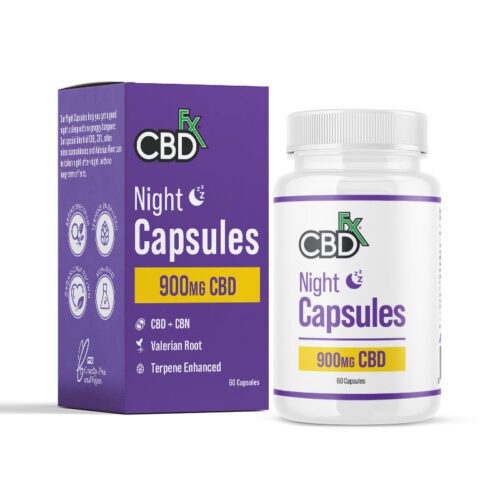 CBDfx CBD + CBN Night Capsules 900mg$53.99
CBDfx CBD + CBN Night Capsules 900mg$53.99$69.99 -
Product on sale
 CBDfx CBD Cream Muscle & Joint 1000mg$44.99
CBDfx CBD Cream Muscle & Joint 1000mg$44.99$49.99
#3: Does The CBD Product Taste Good?
Children with both types of disorders may be extra sensitive to the taste or consistency of the CBD. Therefore, you should make an effort to find a CBD product that is appealing to their senses to make it easier to administer it to them.
This is why we created our Binoid Water-Soluble CBD Oil Drops. We have used Food Grade Glycerin, 100% Organic Essential Oils and Water-Soluble CBD to create a safe, healthy and tasty CBD option for kids. The sweet flavor of the Pharmaceutical Grade Glycerin paired with delicious essential oils and CBD makes it taste as good as it is safe for your kids.
They come in 4 Natural flavors – Lemon, Orange, Peppermint, and Ginger. Lemon and Orange are the most popular Binoid CBD drops for current customers who have children with processing disorders. Our drops contain no harmful ingredients, extra additives etc… Only healthy ingredients that makes this product special.
#4: Be Consistent
We know from those who study CBD that daily use is ideal. Consistently providing the body with cannabidiol seems to play a role in its overall effectiveness, as it seems that the compound works in a cumulative manner. This means that overtime you build up CBD in your system, and therefore can take less to get the same results. Additionally, it also means you save cost in the long run as once you find your child’s perfect result, you can slowly decrease the dose. However, this only works if you are consistent in dosing over a few weeks.
Most of our customers have found that it takes 2-3 weeks for their children to receive the full benefits of CBD. CBD stays in your body for 6-7 days, which means the benefits really do compound once your child takes it consistently.
#5: Monitor Your Child
Of course, while you have your child on a CBD regimen, you should monitor them carefully. Look out for any negative effects, which are rare.
#6: Adjust CBD Dose After Two Weeks Have Passed, if Necessary
Experts believe that it takes two weeks of daily CBD intake before it’s fully effective. Therefore, after two weeks of consistent daily administration, you can decide if you need to make any adjustments to your child’s routine, whether it relate to the time of day during which the CBD is administered, the dosing amount or the milligram strength.
#7: Explore Various CBD Delivery Methods
CBD comes in many forms, including CBD oil tinctures, gummies, capsules, as well as topicals. Each child is unique, and therefore some children will respond to specific delivery methods better than others. We do not recommend giving your child CBD that comes in the form of a vaping or smoking product.
Our Binoid CBD Drops are the least intrusive product to take CBD, with the best taste compared to other CBD types. We do not recommend giving Full Spectrum CBD to a person with a sensory disorder as the taste is very gross. We recommend either Broad Spectrum CBD, or CBD Isolate. Broad Spectrum Hemp CBD contains beneficial compounds of the hemp plant, including CBN, CBG, and CBC, except contain 0% THC. Meanwhile CBD Isolate only contains CBD. Broad Spectrum is better for children with sensory disorders as each compound provides substantial benefits for their overall health.
#8: Adopt Other Approaches as Well
Of course, giving your child CBD should not be the only method that you use for managing your child’s symptoms. Follow your doctor’s advice and do everything that you can to provide them with a safe and stable environment.
Why Binoid CBD Products are So Popular Among Children with These Disorders
We’ve heard from many parents of children with autism spectrum and sensory processing disorders that our CBD products are the best due to the unique needs created by these conditions.
They Have an Appealing Flavor and Smell
We go to great lengths to make our CBD products as appealing to the senses as possible. We use high-quality flavoring ingredients as well as natural fragrances. Children with both conditions may be uniquely sensitive to flavor and smell, and so it’s no surprise that these children respond well to our formulas.
They’re Child-Friendly
Our Binoid CBD products are child-friendly, meaning that they do not contain any ingredients that may be safe for adults but dangerous for children. Our formulas are simple and natural, and they are gentle on the system. We don’t use unnecessary fillers and dyes.
Have Childproof Packaging
Our products also have childproof packaging, which means that you won’t need to worry about your child accessing our products when they’re not supervised.
Best Cannabidiol Products at Binoid CBD for Children with Sensory Processing and Autism Spectrum Disorders
Now, let’s look at some of the Binoid CBD products that parents are giving their children who have these disorders.
- Binoid Water-Soluble CBD Oil Drops – Orange: A CBD tincture with a delicious, natural orange flavor. These drops are administered under the tongue, where they absorb through the sublingual tissue to provide fairly fast-acting effects that can last for a few hours after the dose has been taken.
- Binoid CBD Healing Cream – High Strength: Great for offering localized relief and can soothe the skin as well as the muscles. Its natural scent comes from high-quality essential oils, and so its fragrance is calming, and not overpowering.
- Binoid CBD Gummies – Mixed Berry: Are especially popular for children, as many children love gummy candies. The flavor is especially delicious as it comes from fruit extracts.
Something New for Parents to Look at for Their Kids
Binoid CBD is proud to provide high-quality CBD products that can be used by people with all different types of unique circumstances. If you have a child with a sensory processing or autism spectrum disorder, we invite you to reach out to us so that we can help you find a CBD product for them. Our formulas are natural and gentle on the body, and they’re also uniquely appealing thanks to their flavors and smells.
These statements have not been evaluated by the Food and Drug Administration. These products are not intended to diagnose, treat, cure or prevent any disease. This product is not for use by or sale to persons under the age of 18. This product should be used only as directed on the label. It should not be used if you are pregnant or nursing. This website is not offering medical advice. Consult with a physician before use if you have a serious medical condition or use prescription medications. A Doctor’s advice should be sought before using this and any supplemental dietary product.
To Buy CBD Products Click Here
-
Product on sale
 CBDfx CBD + CBG Morning Capsules 900mg$53.99
CBDfx CBD + CBG Morning Capsules 900mg$53.99$69.99 -
Product on sale
 Binoid Healing Cream – Extra Strength$39.99
Binoid Healing Cream – Extra Strength$39.99$74.99 -
Product on sale
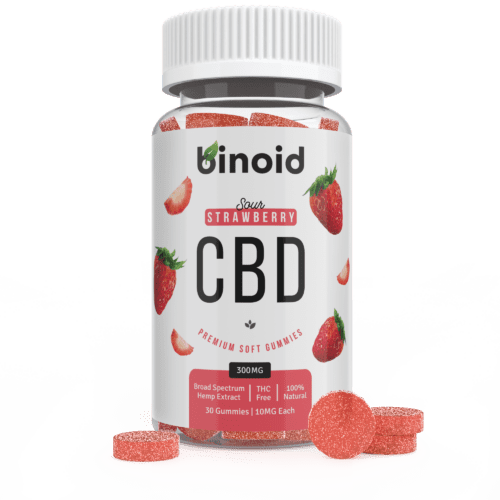 Binoid Gummies – Sour Strawberry$26.99
Binoid Gummies – Sour Strawberry$26.99$49.99

